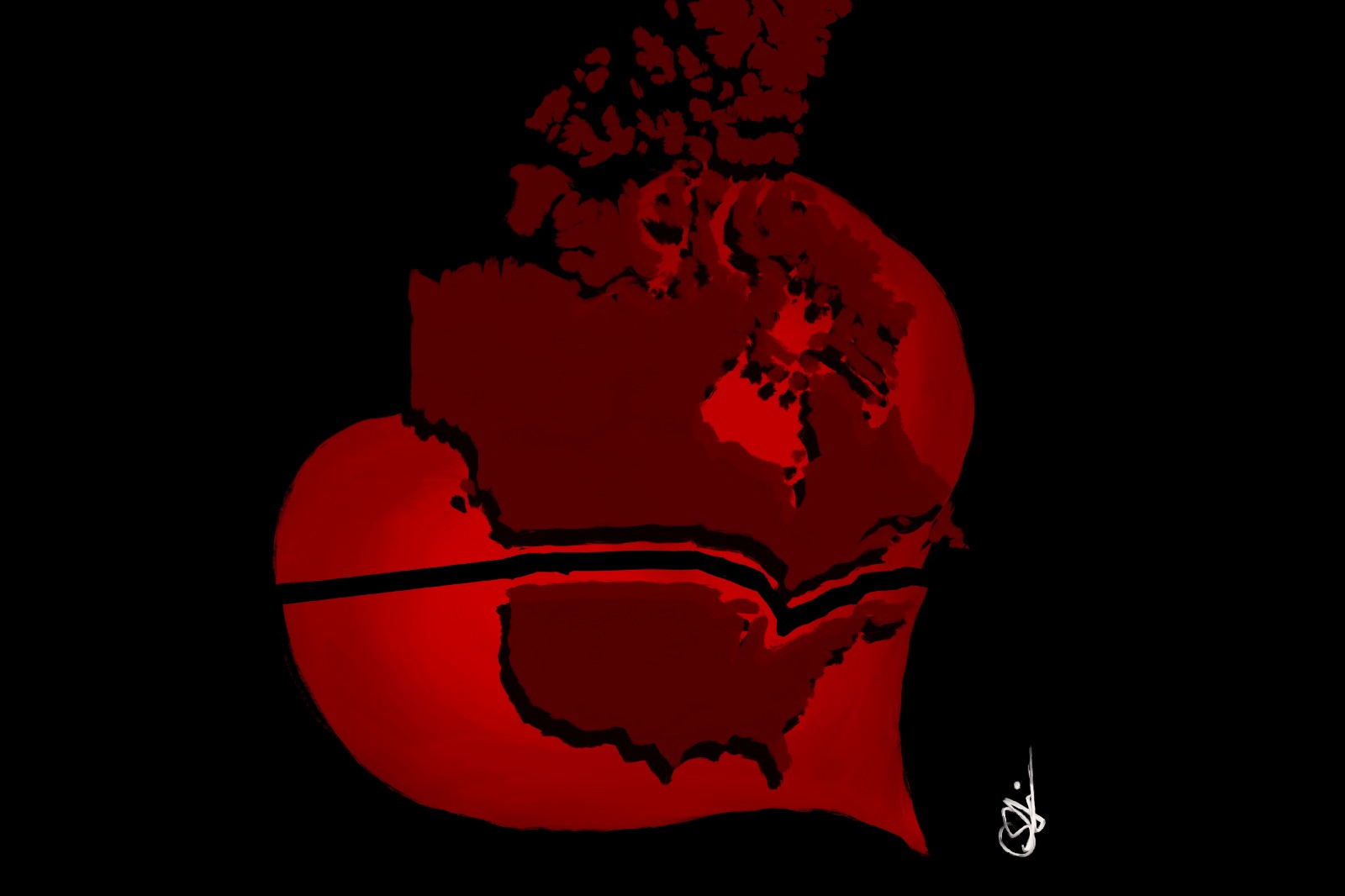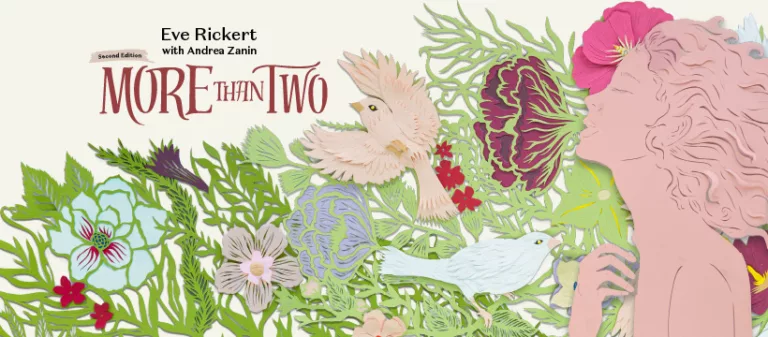Originally published on Medium.
Early this month, Canada’s Minister of Immigration, Refugees and Citizenship announced that unmarried romantic partners of Canadians would be allowed to cross the border and, after quarantining, finally see their loved ones. For many, this is desperately welcome news. The headlines proclaimed “tears of joy” as couples learned they could reunite after months apart as a result of COVID-19 border restrictions.
But for Canadians in consensually non-monogamous relationships, those tears quickly turned to tears of a different kind when we read the fine print, which limits entry to partners in an “exclusive dating relationship.”
Non-monogamous relationships are not “exclusive,” according to the common usage of the word. But they are just as committed, loving and meaningful as monogamous relationships. Our partners are part of our families, and we have suffered just as much from being separated from them during this pandemic as those who have forsaken all others.
It’s 2020, nine years since a landmark Supreme Court of Canada ruling clarified that our relationships are not illegal under Section 293 of the Criminal Code (known as the “polygamy law”), provided we do not perform marriage-like ceremonies with more than one partner. Yet by choosing the word “exclusive” to define the kind of relationship worthy of visiting rights, our government is signalling to us that our relationships are still officially worth less.
That week, polyamorous people across Canada frantically contacted our MPs to ensure we, too, would be able to see our partners soon. What exactly, we wanted to know, does “exclusive” mean? Could the word choice be altered? This is where the story gets strange. Later in the week, the ministry published their definition of “exclusive dating relationship”: a romantic relationship of at least one year, where you have spent time in each other’s physical presence at least once.
But this is not what “exclusive” means in romantic contexts. It means that other people are excluded — that both of you have agreed not to see other people. So while our non-monogamous relationships technically appear to qualify* under the ministry’s bizarre definition, polyamorous people remain confused, and very nervous about signing a notarized attestation declaring their relationships exclusive.
The apparent intent of the “exclusivity” language, as it’s spelled out, is to limit access to partners in a serious relationship — measured by duration (which one might also quibble with, but let’s not for now). The only other requirement, physical presence, is presumably there because an all-online relationship wouldn’t necessitate a physical visit now. Neither duration nor physical presence has anything to do with exclusivity.
Words matter, and despite what appears to be the hastily added clarification, the words chosen for the new rules reflect the values of those who wrote them. Using “exclusive” as a catch-all for these other metrics lays bare a huge assumption: that any serious relationship would (obviously!) be an exclusive one.
But perhaps you’re thinking this is not based on assumptions or bias, but rational risk assessment? Surely someone romantically involved with more than one person is a greater COVID threat?
This smacks of the old (and empirically discredited) stigma that non-monogamous people are vectors of disease. In fact, we are well-accustomed to thinking about and discussing bubble size and the careful minimization of infection risks. Moreover, the ministry’s regulations are not concerned with bubble size in any other instance. They aren’t saying your son-in-law can only come in provided he hasn’t been dating around lately, or that your grandma can only visit provided she doesn’t live with your grandpa. If these considerations don’t apply to others, why are they relevant for us?
Some have suggested it’s “about numbers” — as though polyamorous Canadians collectively have thousands of lovers lined up, ready to rush the border on their way to a massive orgy. This, too, is a gross stereotype. The number of long-term polyamorous partners abroad who otherwise meet the definition and have time for a visit that involves a 14-day quarantine is miniscule compared with the numbers of grandparents, siblings and monogamous lovers now allowed in. And again, nowhere else in these rules are numerical considerations in play: you can have as many step-siblings come visit as you like.
No, this is not about bubble size, or even risk. It is about what counts as a “real” relationship, in Canada’s eyes. It’s literally about how we define “family.” Canada is attempting to define love, and in doing so, seems to be defining ours out of existence.
Carrie Jenkins, author of What Love Is (And What it Could Be)
Eve Rickert, co-author of More Than Two: A Practical Guide to Ethical Polyamory
*UPDATE November 2, 2020: Eve’s MP’s office has investigated this issue, and the ministry has confirmed that polyamorous relationships are not eligible for visitation under the guidelines. So what now? 1. Polyamorous Canadians should contact their MPs and ask them to advocate for inclusion. 2. Canadians with partners abroad should submit the application anyway, and include an explanatory letter outlining why they believe they should be included. If you are denied, contact your MP’s constituent services office and ask them for assistance.



